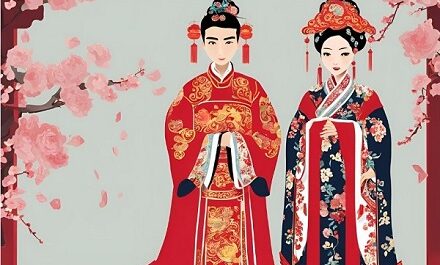Learn Chinese Idiom with Pinyin and English
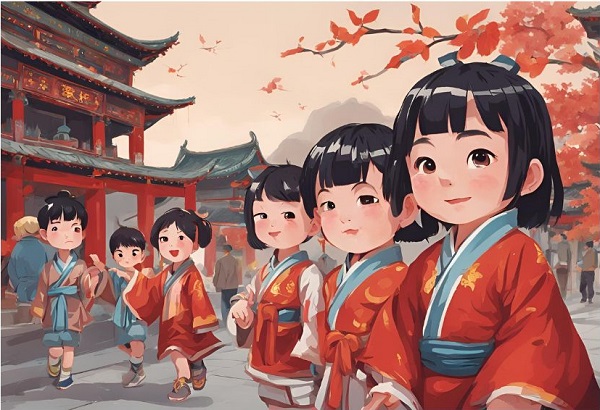
- Idiom in Chinese-五男二女。
- Pinyin of Idiom– wǔ nán èr nǚ.
- Idiom’s Meaning in English– The idiom “wǔ nán èr nǚ” refers to a traditional Chinese ideal of having five sons and two daughters in a family, symbolizing completeness, prosperity, and balance. It was often seen as a sign of good fortune and harmony in ancient times.
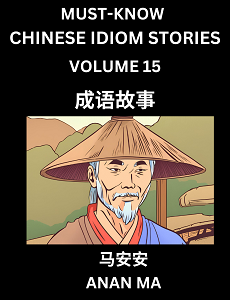
Chinese Idiom Stories Books (HSK All Levels):
- Books to Learn Chinese Idiom Stories (Part 1)
- Books to Learn Chinese Idiom Stories (Part 2)
- Books to Learn Chinese Idiom Stories (Part 3)
Learn Chinese Idiom Story in English (成语故事的英文)
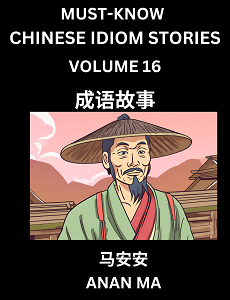
In ancient times, there was a farmer named Li Ming in a small village. He was diligent and kind-hearted, with a harmonious family. However, he had a long-cherished wish – to have five sons and two daughters, believing that such a family would represent perfect happiness. Through years of hard work, Li Ming and his wife finally achieved their dream of having five sons and two daughters. They lived a simple and joyful life, filled with love and mutual support. The villagers envied their large family of five sons and two daughters, considering it a blessing bestowed by heaven.
Learn Idiom Story in Chinese (成语故事)
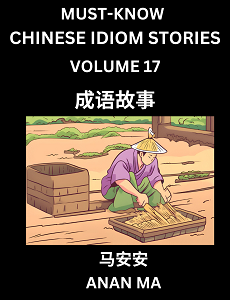
在古代的一个村子里,有个名叫李明的农户。他勤劳善良,家庭和睦,但一直有一个心愿,那就是希望能有五个儿子和两个女儿,他认为这样的家庭才能算得上是幸福美满。经过多年的辛勤耕耘,李明和他的妻子终于如愿以偿地有了五个儿子和两个女儿。他们一家人相亲相爱,互相帮助,过着简单而快乐的生活。村子里的人们都羡慕他们有这样一个五男二女的大家庭,认为他们是上天赐予的福祉。
Learn Keywords with English, Simplified Chinese Characters, and Pinyin (关键词)
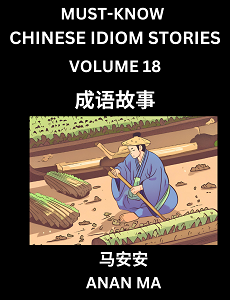
李明 (Lǐ Míng): Li Ming
农户 (nóng hù): farmer
五男二女 (wǔ nán èr nǚ): five sons and two daughters
家庭和睦 (jiā tíng hé mù): family harmony
心愿 (xīn yuàn): wish
幸福美满 (xìng fú měi mǎn): happy and perfect
Pinyin of Idiom Story (故事的拼音)
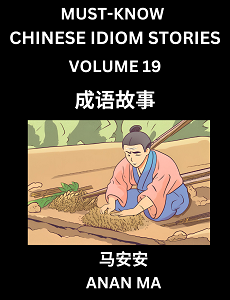
Zài gǔdài de yīgè cūnzi lǐ, yǒu gè míng jiào lǐ míng de nónghù. Tā qínláo shànliáng, jiātíng hémù, dàn yīzhí yǒu yī ge xīnyuàn, nà jiùshì xīwàng néng yǒu wǔ gè er zi hé liǎng gè nǚ’ér, tā rènwéi zhèyàng de jiātíng cáinéng suàndé shàng shì xìngfú měimǎn. Jīngguò duōnián de xīnqín gēngyún, lǐ mínghé tā de qīzi zhōngyú rúyuànyǐcháng dì yǒule wǔ gè er zi hé liǎng gè nǚ’ér. Tāmen yījiā rén xiāngqīn xiāng’ài, hùxiāng bāngzhù,guòzhe jiǎndān ér kuàilè de shēnghuó. Cūnzi lǐ de rénmen dōu xiànmù tāmen yǒu zhèyàng yīgè wǔ nán èr nǚ de dà jiātíng, rènwéi tāmen shì shàngtiān cìyǔ de fúzhǐ.




